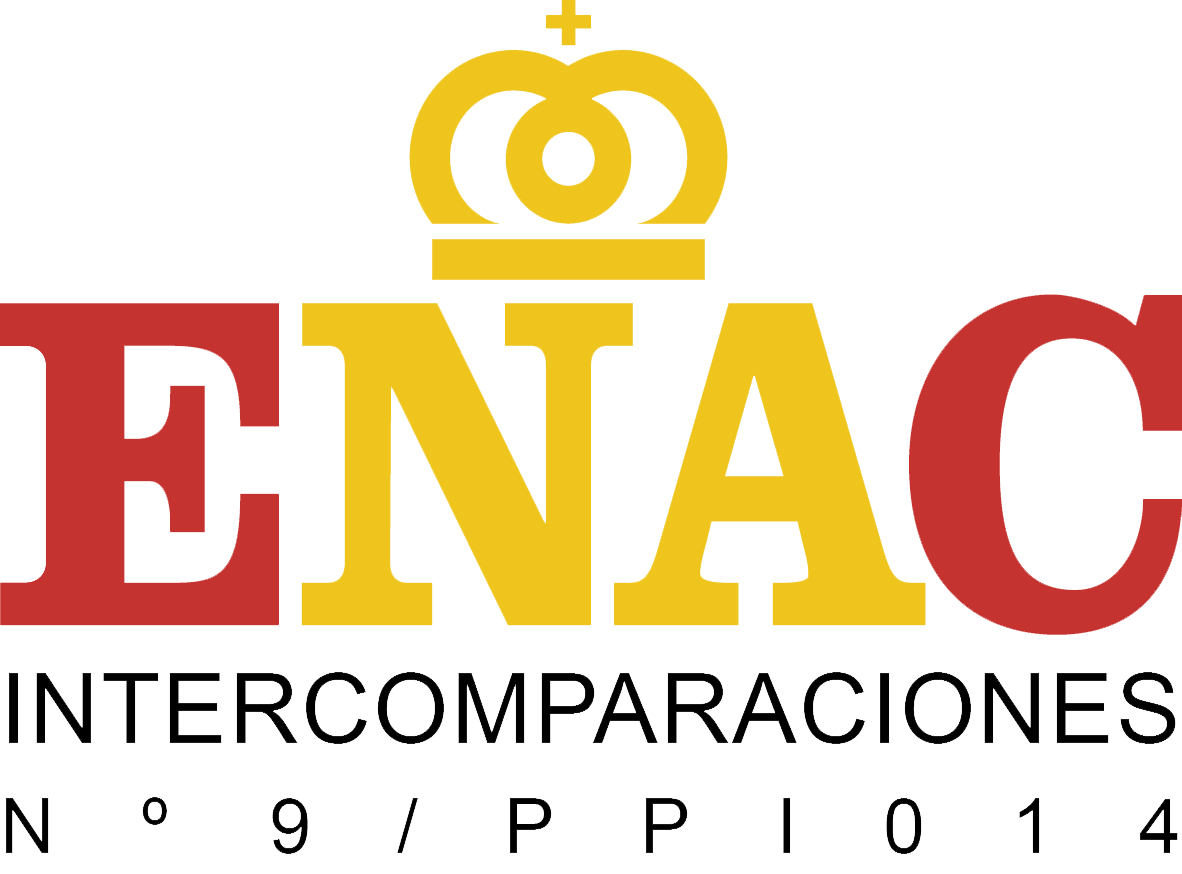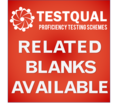Proficiency Tests
About the analytes
Dithiocarbamates are compounds analoge of the carbamate group with the exception that the oxygen has been susbtituted by a sulfur atom, there are two types: mono and bisalkyl-dithiocarbamates 1. they are pesticides organophosphorated mainly used as fungicides and in some cases as mammal repelent 2, they are non-systemic pesticides and their residues can be mainly found in the surface of the crops. Thanks to the activity against a wide number of fungal diseases its use is extended to a high number of crops.3,4.
The current dithiocarbamates are: maneb, mancozeb, metiram, propineb, thiram and ziram.
Some of the dithiocarbamates show a certaing degree of toxicity to mammals, marine invertebrates, fishes, earthwoms and birds, depending on which dithiocarbamate is being considered 2 The main metabolites from dithiocarbamates area Ethyenthiourea (ETU) and Propylenthiourea (PTU) 4, these two metabolites has been found to be cancinogenic to rats 5 and inhibitors of the thyroid hormone and cause of some problems with the blood and liver 6, between another possible ppathogenic effects 4. The toxicity in the long term for mammals can affect the thyroids, but again, the toxicity depends on which dithiocarbamate we are refering to 7.
The current definition and way of reporting results for these pesticides are as "Dithiocarbamates (dithiocarbamates expressed as CS2, including maneb, mancozeb, metiram, propineb, thiram and ziram)"8.
Some of the dificulties that this analysis shows is that due to the low solubility in multiresidues solvents and the low stability the require a single residue method 2,additionaly during the preparation of the sample up to a 100% of the dithiocarbamates can be lost if done at room temperture and if some artificial rubber is used there have been cases when they have contaminated the samples with dithiocarbamates, risking the possible false positive or erroneous results 9.
Summary of the proficiency test
All the information about this PT can be found in the protocol, which can be donwloaded from a link located in the right column of this page.
This proficiency test will consist in a single round, one sample will be distributed for each participant, you can check on the protocol the amount of sample that will be sent.If needed and justified, more amount of sample can be requested to the coordinator of the PT. Additional charges might apply.
The range of concentration for the target analytes of this proficiency test might by between 100 and 1200 μg/kg approximately.
The target standard desviation for all the analytes is 30%.
For this PT the parameters to be analysed are:
|
Dithiocarbamates (dithiocarbamates expressed as CS2, including maneb, mancozeb, metiram, propineb, thiram and ziram) In the client area the results will be submitted as µg/kg of CS2 |
IMPORTANT:
For this PT it is highly recomended to all participants to follow the additional instructions that are provided along with the sample, as these indications will help participants to report their results in a way that ensures a proper comparison and evaluation.
PT Scheduled calendar
Check deadlines and schedule for this PT in the right column of this page (In section DATES).
*These dates are orientative and always will have to be checked in the protocol of the PT and the news in our webpage.
Why participate with TestQual? Is this PT accredited?
·Accreditated PT under the UNE-EN ISO/IEC 17043:2010. Check our accreditation scope here.
·Wide experience in this kind of PT. Multiple dithiocarbamates PT organized every year since 2013.
·Constantly negotiating with providers and couriers to get the best price possible. Each year more participants partake in our PTs, increasing our volume of shippigns and reducing the cost of the shipments
TestQual's proficiency testing schemes are a useful tool for testing laboratories to demonstrate their competence and quality assurance of their analysis, a continous participation allows our clients to compare their results with other laboratories from the sector, follow up their performance and detect bias or errors that can be correctly approached with preventive or corrective actions.
By assiduously participating in PTs laboratories can assure their clients their commitment to the continous improvement and scaning of possible errors, offering always the security and trust that their results are always reliable and have been contrasted through an exhaustive internal quality control and continuous checks with the participation in TestQual's proficiency tests.
Additionally, from TestQual we make sure to listen to all the feedback given by our clients, making sure our PTs are designed accordingly with the needs and sugestions of our participants.
TestQual designs its Dithiocarbamate's proficiency tests with the goal of mitigating and reducing to the maximum possible these variables, this way the participation in them will allow participants to contrast and compare their results, always keeping in mind that each laboratory must follow their usual procedures, ensuring a true and useful comparison.
In this kind of PT is equally or even more important to participate continously, this laboratories will be able to see their results over time and will likely allow them to see improvements in the obtained evaluations.
How to apply and get your laboratory code
Those laboratories that want to participate and are not registered on our website can register through this link: START REGISTRATION
If your laboratory is already registered on our website you can start your applciation by clicking the link situated at the bottom of this page, in APPLICATION FORM, once you have logged in you will have to enter your Limit of Quantification (LOQ) for the parameters that have to be studied. The analytes with LOQ equal to NA (NOT ANALYSED) will NOT appear in the website when submiting the results of the PT.
Once the application has been sent, as soon as possible you will receive an email with your laboratory code for the participation in the PT.
Contact us
If you have any doubt, if you want to get a quote or if we can help you in any other way, you can contact us by:
| Email: | jpnavarro@testqual.com |
|---|---|
| Office phone: | (+34) 868-94-94-86 |
| Mobile phone: | (+34) 676-367-555 |
Thank you for your trust in TestQual and our proficiency tests.







